Blogging for Startup Marketing: Is It a Good Use of Your Funds?

The world of startups can be described with interesting phrases like "aggressive churn", and that's never a good sign. Startups can show up, get funding, develop their service, and die before they ever make an impact. So what's the problem, and how can they solve it?
The biggest problem with a startup is not securing funding, developing a product, or contracting to manufacture. It's actually something completely overlooked by many startup founders: marketing.
Oh, don't get me wrong. Startups are constantly marketing. They do interviews in magazines, they send press releases to newspapers, they get coverage of their successful Kickstarter campaigns on blogs. The problem is, they don't leverage that into anything.
When someone visits a startup website, what do they see? More often than not, it's a landing page, maybe some big flashing animations or a video, a huge countdown timer to launch, that sort of thing. It's almost expected and is becoming an inside joke with most new startups.
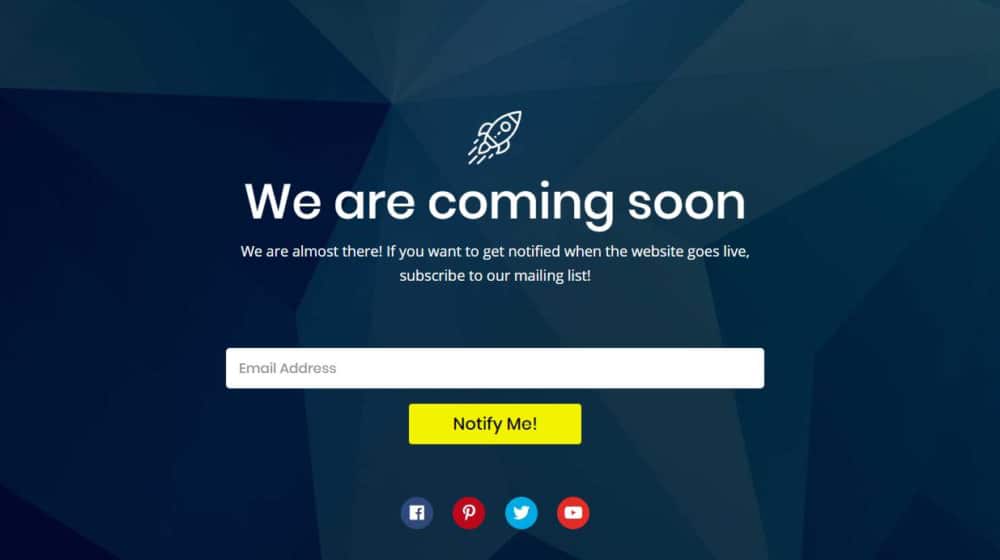
There will probably be an opt-in form for visitors to sign up for a mailing list and get notices when the product launches, and there could be a basic, bare-bones news feed to keep visitors and backers updated on the status of the startup.
What there almost never is, though, is a blog. Real and useful content, designed to attract new visitors centered around your product.
Blogging for startups is not a new idea, and I'm not going to claim I'm some pioneer by telling you that you should do it. It's been around as a concept for decades, and there have been articles written about its benefits for just as long. I just feel that, in the modern-day press of information and advice, it's easy to lose sight of the biggest pro-tips you can get. People get so wrapped up in the intricacies of responding to comments on Kickstarter or on negotiating contracts with venture capitalist firms that they forget that something as major as blogging is something they should be doing.
So many people take it for granted that they forget to give the advice and startup entrepreneurs who haven't heard it often enough forget that they should be doing it.
There's also the matter of budget. A startup has a limited amount of funds to spend on everything, from developing a website to designing a product to marketing to shipping to everything else. The idea of paying for a blog becomes less and less appealing the more other demands you have for your money.
Here's the thing: you will never have enough money to do everything everyone thinks you should do. You have to determine what is best for your startup.
 30 Second Summary
30 Second Summary
You have to make blogging a important part of your startup strategy. You'll get long-term organic traffic, better SEO rankings and an engaged audience that trusts your brand. Your blog will help you show your industry expertise and attract potential investors. When you write posts, focus on personal lessons, market predictions, product updates and customer concerns. You should shoot for 1,500-2000 word posts with clear formatting. While blogging takes time to build momentum, it will help transform your startup into an established business.
What Blogging Does For Your Startup
So what does blogging do? What are all these benefits that it brings to the table? Can it be the single greatest asset to your business?

I'm not going to just assume you know; I'm going to tell you each of the benefits, one by one.
1. Consistent and Long-Term Organic Traffic
Blogging drives organic traffic to your startup site. Getting media coverage is a good way to get a lot of people to have read your name once and not really retained much information. It's also a good way to get other journalists who want to cover the same topics to cover you as well. For driving new customers? It's not always that great.
Blogging with relevant niche content, of a high enough quality to rank well in Google, is damn near essential for drawing in new people. Blogging allows you to answer one crucial question your potential customers are asking: "why should I care?"
Blogging gathers an audience, and some of that audience will stick around. You don't have to force them from blog to mailing list if they're going to come back on their own.
Now, you don't need to be blogging every single day for this to work. It helps to have a larger backlog of content, but it's not entirely necessary. High-quality content published occasionally is better than mediocre content published constantly.
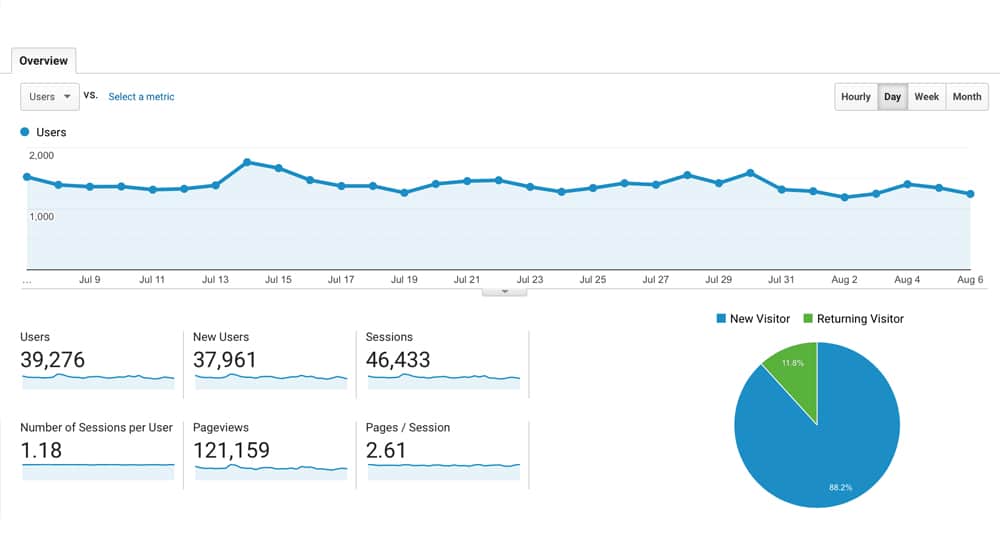
Blogging drives traffic to your social media. A huge amount of startup coverage, viral popularity, and communication with users comes from social media. The trouble is, social media is inherently limited. You don't get much reach on platforms like Facebook if you're not getting tons of shares, and you don't get tons of shares without a large audience. So, if you don't have an audience, you can't build an audience. The solution Facebook gives you is to give them money for promoted content, but that's just another financial drain. Oh, you should definitely be doing it, but it's not all you should be doing.
Blogging brings in people who might not otherwise have heard of your startup and allows you to forward them not just to other content, to mailing lists, or to landing pages, but to your social media as well. Getting those people to follow you gives you even more exposure, more engagement, and more chances to go viral on those social networks.
2. An Engaged Audience
Blogging boosts user engagement. You don't just want users to be visiting your site, you want them to be reading your content, you want them to be engaging with your brand. Whether they're engaging on your website or your social media, it's all good. Blogging gives more content for users to engage with.
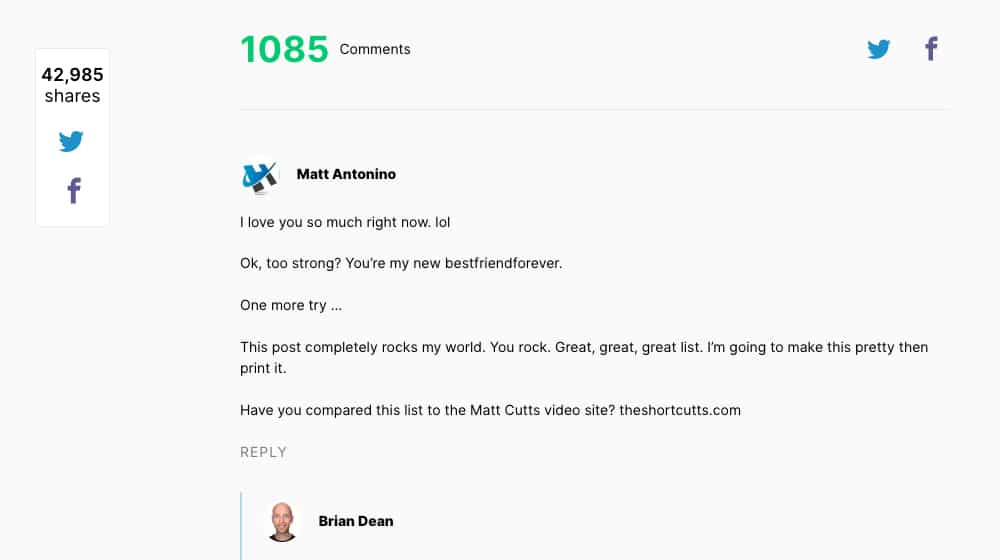
Most important is the ability to have blog comments open on your posts. Users who read your content and have questions about your product or startup (in general) can simply ask in the comments section. As long as you pay attention and answer those comments, and answer them, you foster a sense of community and engagement that is hard to find anywhere else. Even social media is filtered through algorithms and top comments sorting, making it harder to get that community going. Plus, you have full control over moderating spam, low-effort or offensive comments, and nearly every other aspect of those comments.
3. Improved SEO
Blogging makes your startup's site rank better. If your startup's website is little more than a landing page and an explainer for your product, that might be flashy and snappy and cool, but it's pretty much worthless for marketing. People find what they want to find online through Google these days. If they can't find your site on Google, they aren't going to find your site.
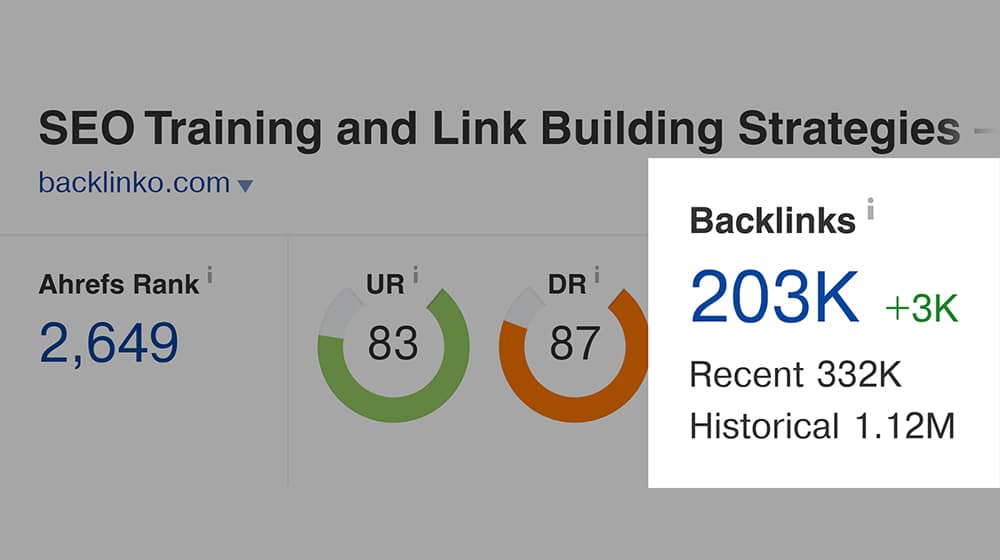
Sure, you'll rank for some primary keywords that all the media coverage is using to cover you, and you'll rank for your main brand name, but what about keywords in your industry at large? What about keywords relevant to the problem your product solves? The only way you can rank for these is to cover those topics in blog posts. Without a blog, your presence on Google becomes negligible at best.
4. Thought Leadership
Blogging shows off your knowledge. One of the biggest questions (beyond "why should I care?") that your potential customers will be asking is "who are you and why should I trust you?" We live in a world where Kickstarter results in more scams than successful products, where startups die before they see a retail launch, and where the average user is hesitant to buy anything through a site that isn't Amazon. That's a lot to overcome.
A blog isn't going to solve all of those issues, not entirely, but it can go a long way. The goal is to showcase that you know what you're talking about, you know what your target customers are dealing with, and you know how you can solve it. Showcasing that knowledge makes you more trustworthy.
Blogging can attract more investors. Do you want to talk about return on investment? What if running your blog could get you more capital to put towards your startup, just on its own? It's definitely possible.
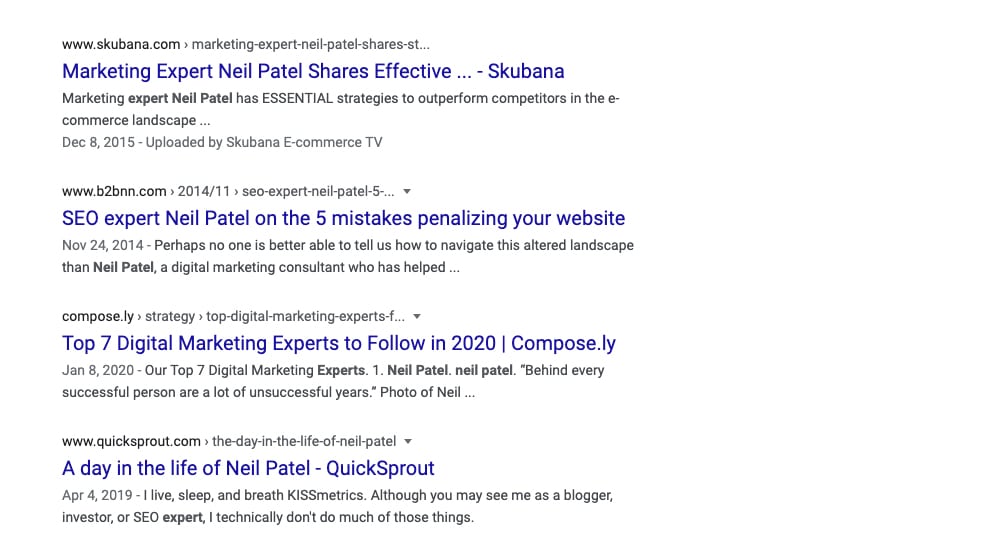
One of the pages on your website should, of course, be a pitch package for potential investors. This package is what you give to anyone interested in supporting your startup, whether it's basically just a link to Kickstarter or whether it's a whole traditional document package.
On the sidebar of your blog, somewhere prominent, you can include a call to action for investors to check out that page. Then, even if you're spending money on your blog, you get that money back with the investors who see your blog and decide to invest based on what you've written. It's a lot more likely to happen than you think!
5. Brand Building
Blogging helps you transition from a new startup to an established brand. The goal here is not to be a startup forever, right? After you've started up, you need to continue. A blog helps make that transition smooth.
What is one thing most businesses have in common? They have blogs. What do all the major players in your industry have? Blogs. What can you do to make your brand more like theirs? Run a blog. You show up in searches, you get linked to by others in the industry, you build an audience and a reputation, and eventually, you're no longer just a startup, you're in business.
Blogging helps build your mailing list. Now, obviously, you can do this without blogging, but a blog helps you bring in more people from more different targeted searches and keyword queries. All of this helps you ferry more and more interested people to your opt-in forms, where they can become part of your newsletter and your other marketing channels.
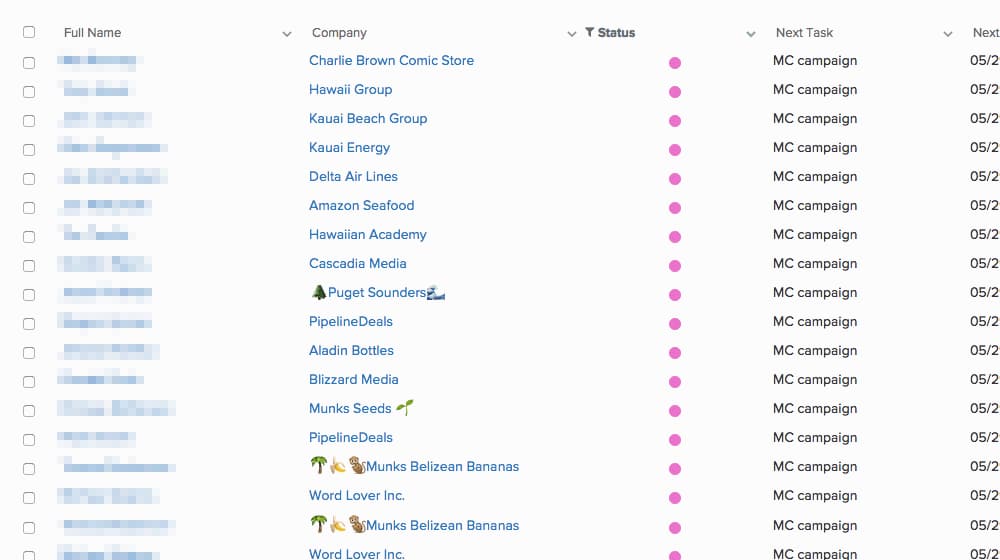
Blogging allows you to solicit feedback. Nothing is quite as valuable to a startup as engaged feedback from their customers. Beta users, or even just potential users who think about the potential problems and flaws with a product, can help you point out those flaws before you go into production. With this, you can think about new features to add, bugs to fix, issues to address before they become issues, and all the rest. Since such a big problem with modern startups is going with the cheapest options and getting janky, low-quality products, having feedback and the willingness to publicly improve will go a long way.
How to Run a Startup Blog Successfully
Have I convinced you? Great! Let's get started.
Running a blog for a startup is a little different from traditional business blogging. It requires more agility, a direct connection between the people running the blog and the people running the startup, and a lot more of a sales push.
Topic Ideation
First up, you need to determine what you're going to blog about. Here are a bunch of potential topics you can use, and keep in mind these can be reused for multiple blog posts depending on how narrow you make them.
- Personal lessons. What have you as an entrepreneur learned throughout this process? What challenges have you been encountering and how have you solved them? These kinds of personalized anecdotes are great link fodder.
- Market predictions. Where is your startup going, where is your industry going, where is the market as a whole going? Making predictions, with rationalization, puts you in a thought leadership position. If you're right, people respect you more. If you're wrong, you do a retrospective analysis of your mistakes and figure out what went wrong. Either way, it's great.
- Industry insights. You're trying to be an authority on your industry, because that's how you get people to trust you. So, write about your industry.
- Product updates. A news section of your blog dedicated to updates on the product development process is great. It's also a great channel for getting the feedback I mentioned above.
- Customer concerns. Whether they're concerns with your product, concerns with the industry at large, or just talking about the problems your product is intended to solve, this is a near-endless well of topics.
Topic ideation comes next. You have general ideas; now narrow them down to specifics. Think about specific questions, specific concerns, specific topics, and research them. Look at what other content is already out there covering that topic, and figure out how to out-do that content, or do it with your own unique spin.
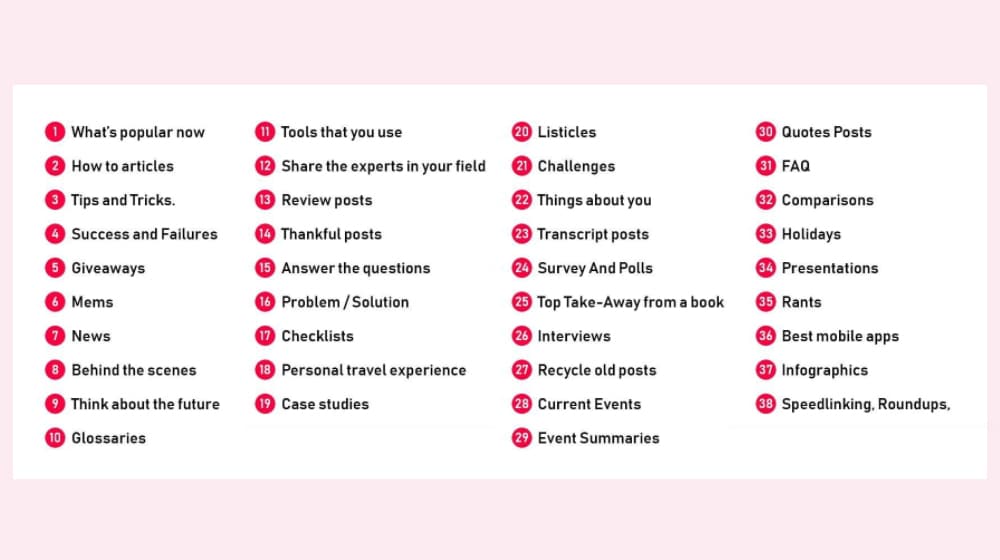
Keyword research is important here. I'm not generally a huge fan of keyword research, but it's undeniably helpful to guide content creation, so it's worth doing. Use some of that startup funding to buy access to a good keyword research tool and spend some time learning to use it.
For each topic, figure out what kind of content does it justice.
- Lists. Top lists (and lists in general) are highly engaging. They're easy to read, easy to consume, and they attract comments from people pointing out other items that can go on the lists.
- Tutorials. Usage guides for your product are great, even if they're theoretical because your product isn't actually developed yet.
- Ultimate guides. Trying to become The Best Resource for a given subject is a tall order, but if you can pull it off, it's a very good position to be in.
- Interviews. Part of being a successful startup is networking, and you can leverage that network to pull in experts for interviews. Use your connections!
Deciding what you're going to write about is almost as important as writing itself, if not more important. Which brings us to...
Writing Your Content
Once you have a robust list of topics, you can start writing. Don't start publishing immediately, though! You want to have a decent backlog of content that's not time-sensitive that you can use to post to fill gaps that would otherwise be left empty when you have a busy week.
As far as blog posts themselves go, I recommend a word count of at minimum 1,500 words, with 2,000 being closer to ideal. Focus on the quality and density of information. Make sure to use plenty of formatting, lists, subheadings, and images to break it up and keep it easy to skim.
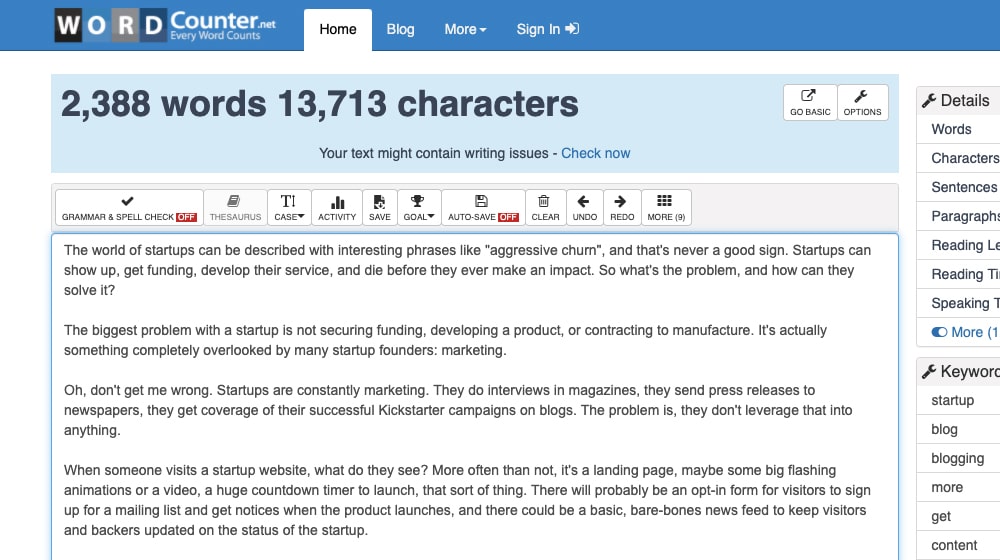
Hiring a blog manager to do some or all of this for you, or hiring a writer to handle the actual content production while you handle the rest, can be a great use of funds as well. You simply have to figure out how much of a budget you have.
From there, it's just a matter of learning, developing your blog on an ongoing basis, and keeping at it. Startup culture is all about fast hits, fast development, fast results, and blogging goes against that. It's slow, but it snowballs, and that's what you need to take you beyond the initial churn and into doing business.



 30 Second Summary
30 Second Summary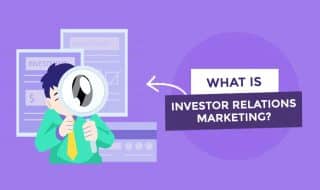

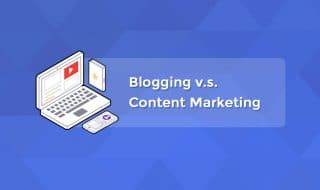

July 29, 2020
I also believe putting up some videos to break in between the content would be a win-win. Videos are accessible these days and can easily be shared. It will increase engagement on other platforms while you also have your blog for solid branding. It’s like hitting one stone - you know the saying. =)
July 30, 2020
Hey Jon, thanks for sharing!
Definitely, I like embedding videos when it adds value to the post. If you end up adding a lot of videos, it's a good idea to optimize those embeds or lazy load them or it can really slow the page down and potentially hurt your rankings. Some caching plugins like WP Rocket can lazy load YouTube videos, we have an example of lazy loading 29 videos at once on this page (notice how fast it loads): https://www.contentpowered.com/blog/ted-talks-bloggers-marketers/
Do you create your own videos, or embed other people's videos?
September 03, 2020
Hi James, most of the startup websites or Kickstarters I have visited don’t have blogs. Could you give me examples of Startups that is successful who utilize blogging? Need to get some inspiration, TIA.
September 03, 2020
Hey Charles!
Blogging is a more advanced digital marketing strategy that, in my humble opinion, is not for beginners.
In order to do it properly and successfully, it's expensive, time-consuming, and requires a number of different skillsets (writing, graphic design, programming, SEO and marketing, editing, etc).
For that reason, it's far less common to find brand new websites with an effective content marketing campaign.
Usually, blogging is ideal for businesses who already have some cash flow and are looking to increase their sales and long-term growth.
I compare blogging to a lot of things, but for the sake of this conversation, let's compare it to the stock market.
You're paying a one-time investment into something that may take months or even years to pay for itself.
If you're strapped for cash or just starting out, this can put pressure on your marketing efforts, which can lead to other problems (cutting corners, outsourcing, or abandonment).
I think Product Hunt is a good place to go to look at some startups who have blogs. Many of these sites have just launched, so you are less likely to find established blogs, but a healthy percentage of them do have blogs. A smaller percentage of them are blogging properly, but it depends on their cashflow, funding, marketing strategy, and experience.
I hope this helps! Feel free to email me at any time if you need some help putting together an effective blogging strategy.
September 14, 2020
If you have the funds for it, blogging seems like a no brainer. I can see why blogging is a popular startup strategy, especially if you're a writer and a hustler and can write a great blog post every week or so.
September 15, 2020
Hey Evan! Absolutely, though consistency is also key. Some people try the DIY approach and realize how much work blogging is, and they give up after a couple of weeks. If you can stick with it and you're familiar with content marketing, SEO, and blogging best practices, it's definitely something you can do yourself, as long as you're getting results and you're writing good quality content on a regular basis.
That last part is where a lot of people go wrong.
We wrote a really good post on this; a sort of outline for people who might want to attempt a DIY content marketing campaign:
https://www.contentpowered.com/blog/write-seo-friendly-blogs/
November 11, 2020
I have a very limited budget and I am torn between choosing a blog or paid social ads. Do you think a blog will work best?
June 07, 2021
Hi Nick!
I apologize for the very late reply, this was buried somehow:
Paid social ads are very fast-acting. If you can get your cost per conversion low enough, it's very scalable and you can get sales rolling in immediately.
Blogging is very much a long-term approach.
The difference is that a single blog article can drive dozens or even hundreds of sales over the years. You own your content, and it continues to work for you.
I think if you can make your ads work for you in the short term, it's a very good idea to invest in blogging for the long-term, especially if you're in this industry for the long haul. The ROI doesn't get much better than content creation. You own your content and it will provide traffic for years - if you put the time into it and your content is high quality.
June 07, 2021
Great stuff here! Gave me a lot to think about.
June 07, 2021
Hey Greg! Thanks for stopping by and for your feedback.
June 24, 2021
I can see why so many startups are investing so much into their blog. What percentage of your total marketing would you recommend allocating? 50%? 90%?
June 25, 2021
Hey Reinaldo!
Every startup is different, and it's hard to give you a flat percentage of what you should invest into an organic marketing strategy.
One of the most significant mistakes startups make is putting too many of their chips into blogging when they first launch.
It can take months or even years to pay off, so it's probably better as a secondary form of marketing, not a primary form when starting.
As your site grows, you can start to ween yourself off ads and invest more into an organic strategy.
Some bold startups go all-in with a 100% organic growth strategy. We're one of those startups, and it's worked out well for us, but we are also very good at what we do, and we're patient.
I hope this is helpful!